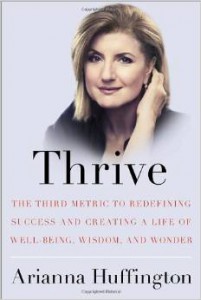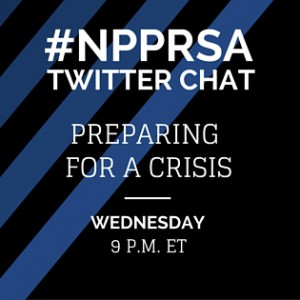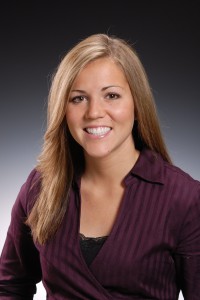This post is part of The Edge monthly series of book reviews on books relevant to new PR professionals.
 For those who have been considering Arianna Huffington’s book Thrive, it’s worth reading. Huffington’s book focuses on our society’s ever pressing demands and offers advice on how to handle, these challenges. The book begins by describing a life changing moment for Huffington personally, providing the reader with the background and inspiration for her book and then continues with four pillars or sections, of well-being, wisdom, wonder, and giving.
For those who have been considering Arianna Huffington’s book Thrive, it’s worth reading. Huffington’s book focuses on our society’s ever pressing demands and offers advice on how to handle, these challenges. The book begins by describing a life changing moment for Huffington personally, providing the reader with the background and inspiration for her book and then continues with four pillars or sections, of well-being, wisdom, wonder, and giving.
In Thrive Huffington’s main argument is that instead of constantly striving for money and power, success should be measured in other ways, in this the pillars of well-being, wisdom, wonder, and giving. Some of the advice offered by Huffington may seem self-evident, but it never hurts to be reminded. The following points on technology and information I think most young professionals can relate to, and I know I did.
Huffington focuses on meditation and mindfulness, ways in which to live more in the moment and to combat stressors in our lives. One thing she indicates that constantly vies for out attention is technology, she mentions “technology has been very good at giving us what we want, but not always what we need.” Huffington also acknowledges that the workforce emphasizes get more done and faster, but that at some point we can’t function if we don’t make time for ourselves. I know personally I can’t constantly have my A-game if I don’t give myself some downtime.
More words of wisdom in the book discuss how we constantly desire to have information and how we consume our information via social media. “The quest for knowledge may be pursued at higher speeds with smarter tools today, but wisdom is found no more readily than it was three thousand years ago … In fact, ours is a generation bloated with information and starved for wisdom.” She later goes on to say, “I believe our job in the media is to use the social tools at our disposal to tell the stories that matter-as well as the stories that entertain- and to keep reminding ourselves the tools are not the story.” Being constantly bombarded with information is not really always the best for us, but in our fast paced world it sometimes feels like we need to keep up. Sometimes I think it’s good to remember we need limits in our lives we don’t have to stay on top of everything, and there is nothing wrong with that, the only hard part is knowing when to establish your own limits.
All in all, Huffington’s advice is great not only for people who already have 9 to 5 jobs but also people starting out in the working world. Guiding us new professionals towards discovering a career that we enjoy and in the process remembering as we advance in our careers to still take the time to enjoy the things in our lives, making sure we live life and not let it pass us by. Coming to understand that success should not have to be living to the point of exhaustion and creating hazardous lifestyle is important, and something I know I connected with. What we prioritize and what we value really can and does make a difference.
 Stephanie Raso is a graduate of Linfield College and earned her BA in Communication Arts. She is a new pro-member and volunteer with PRSA’s Portland Metro Chapter. Connect with her on Linkedin or on Twitter @StephanieRaso1
Stephanie Raso is a graduate of Linfield College and earned her BA in Communication Arts. She is a new pro-member and volunteer with PRSA’s Portland Metro Chapter. Connect with her on Linkedin or on Twitter @StephanieRaso1
 We’d like to thank everyone who participated in the March #NPPRSA Twitter chat as we discussed crisis communications–how to prepare and how to react. We would especially like to thank Jonathan Bernstein, President of Bernstein Crisis Management.
We’d like to thank everyone who participated in the March #NPPRSA Twitter chat as we discussed crisis communications–how to prepare and how to react. We would especially like to thank Jonathan Bernstein, President of Bernstein Crisis Management. Lauren Rosenbaum is the PRSA New Professionals Social Media Co-Chair and Co-Founder of Soversity, a public relations and digital marketing company. You can connect with her on Google+, LinkedIn or Twitter.
Lauren Rosenbaum is the PRSA New Professionals Social Media Co-Chair and Co-Founder of Soversity, a public relations and digital marketing company. You can connect with her on Google+, LinkedIn or Twitter.
 If you’re like me, the end of the year is a time to reflect on successes and challenges from the past year, as well as make plans for the upcoming year. New public relations professionals face a lot of challenges: a fast-paced and competitive job market, demanding clients and colleagues, and an evolving industry with an array of new channels and tools.
If you’re like me, the end of the year is a time to reflect on successes and challenges from the past year, as well as make plans for the upcoming year. New public relations professionals face a lot of challenges: a fast-paced and competitive job market, demanding clients and colleagues, and an evolving industry with an array of new channels and tools.




